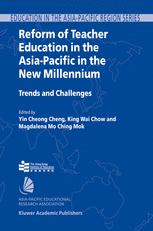

Most ebook files are in PDF format, so you can easily read them using various software such as Foxit Reader or directly on the Google Chrome browser.
Some ebook files are released by publishers in other formats such as .awz, .mobi, .epub, .fb2, etc. You may need to install specific software to read these formats on mobile/PC, such as Calibre.
Please read the tutorial at this link: https://ebookbell.com/faq
We offer FREE conversion to the popular formats you request; however, this may take some time. Therefore, right after payment, please email us, and we will try to provide the service as quickly as possible.
For some exceptional file formats or broken links (if any), please refrain from opening any disputes. Instead, email us first, and we will try to assist within a maximum of 6 hours.
EbookBell Team

5.0
58 reviewsIn facing the challenges of rapid globalization, IT intensification, international competition and local demands for developments, educators, scholars and leaders in the Asia-Pacific region and other parts of the world are concerned with reforms of teacher education for the future of education in the new millennium. This edited volume aims to provide a global sharing of the major trends and characteristics of the ongoing teacher education reforms in this region and the major challenges and issues raised in policy formulation and reform implementation.
With a total of 14 chapters prepared by 18 scholars from nine educational systems – Australia, Canada, China, Hong Kong, India, Japan, Korea, Malaysia, and United States – in the Asia-Pacific region, the book highlights the trends and challenges in the reform of teacher education in the region generally and in eight educational systems in particular. Most chapters directly or indirectly address the latest issues of teacher education and development at operational, site, and macro levels from a national or regional perspective.
This volume is of interest to teachers, teacher educators, researchers, policymakers, and other stakeholders in all developed and developing countries.